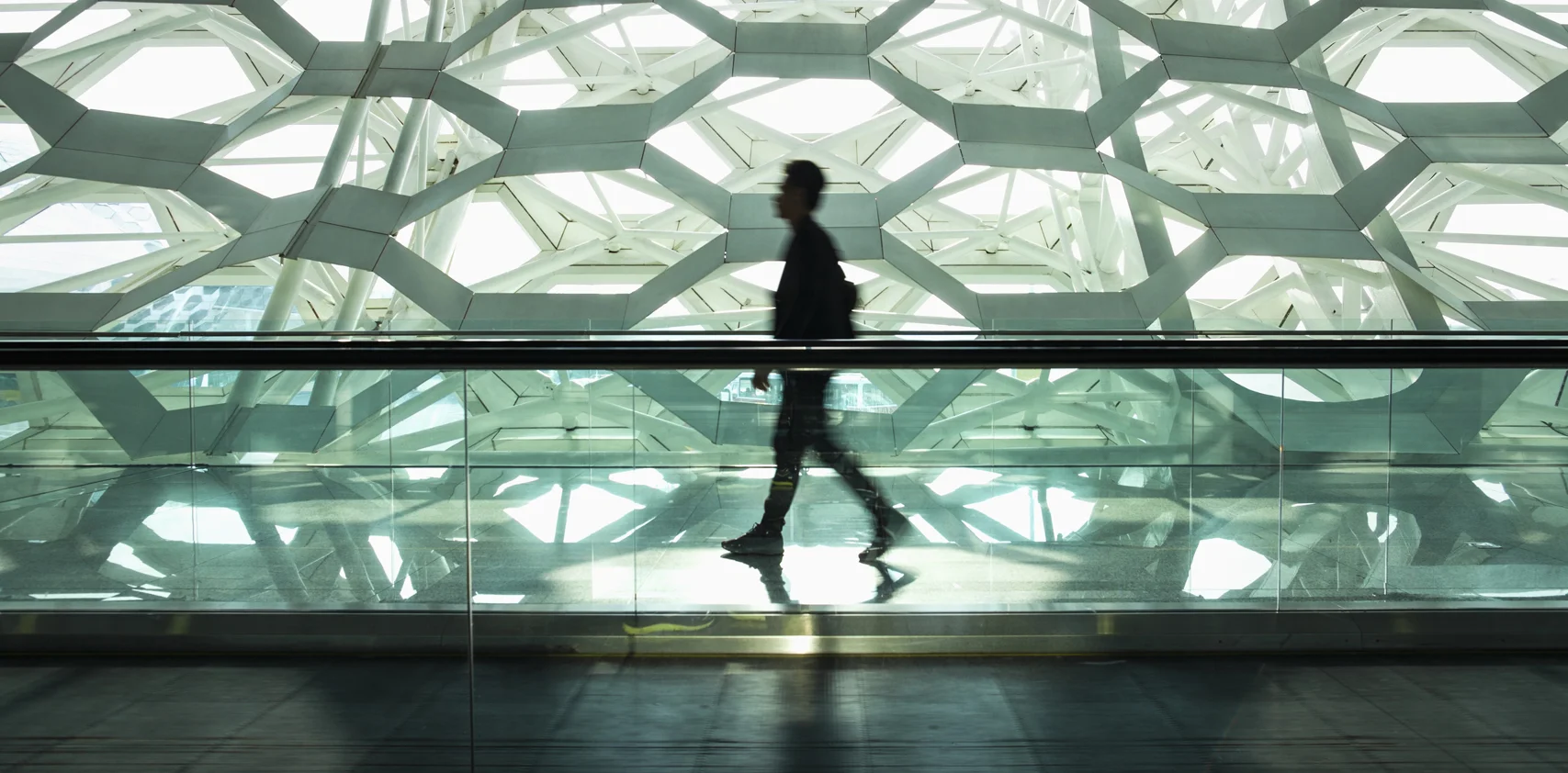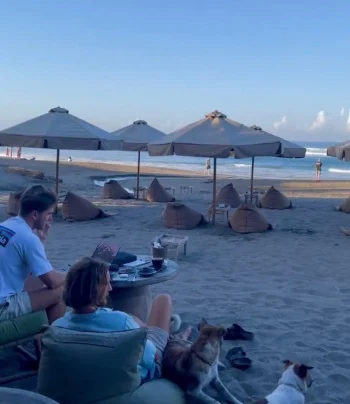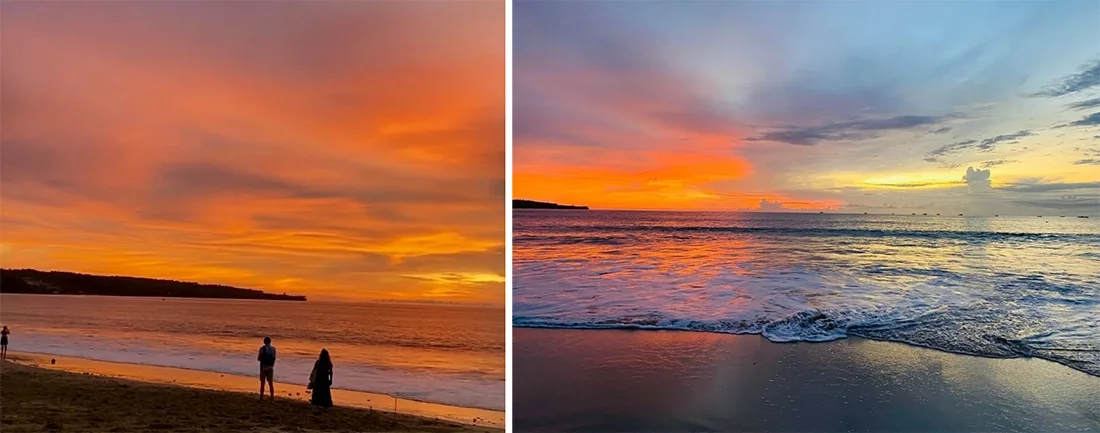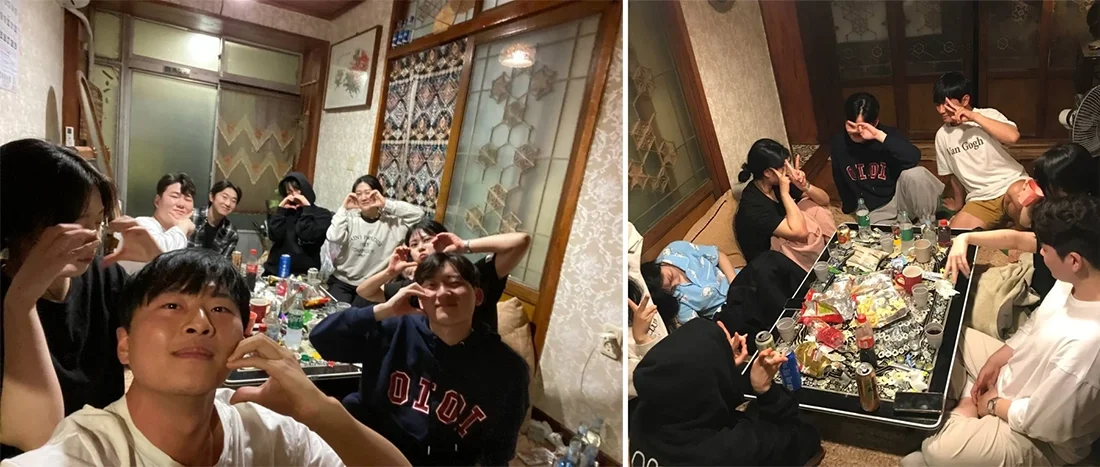Is PM Your Key to Digital Nomad ? Reflections from My 4-Month Digital Nomad Life as a PM
December 14, 2023

Photo by FangXiaNuo from iStock
The article wants you to know
1. 3 jobs leading to digital nomadism
2. Discovering the 7 advantages of life as a digital nomad
3. The top 3 challenges product managers face as digital nomads
4. PM and digital nomadism: lessons after 4 months on the road
What Is Digital Nomad?
If you hear the term "Digital Nomad" for the first time, you can start from the brief introduction below.
Digital Nomad can be divided into two parts for better understanding - "Digital" and "Nomad."
Digital: It refers to your primary source of income, which can be acquired from software or the internet. With the help of a computer and a stable internet connection, you can earn your income by completing a task or providing a service online
Nomad: refers to those who can freely move around. With the nature of digital work mentioned above, you can break the limitations of specific geographic locations (e.g., physical office, meeting room, etc.). Wherever there is a stable internet, and you can work and build your business.
So in my understanding, digital nomad means:
You are a remote worker who can "freely move" to various locations in the world and "earn income" through "internet-related" business or work.
How to Describe the Lifestyle of Digital Nomad?

"Freedom to travel and live in different parts of the world, immersing in local cultures while making money online."
"One-second finishing meetings and tasks, the next second heading to the mountains or the beach."
"Earning a salary comparable to that of developed countries while living in a place where the cost of living is equivalent to that of developing countries."
Which Professions are More Suitable for Digital Nomads?
Freelancer: Includes but not limited to website building, software engineering UI/UX design, marketing, video editing, writing, video creation (YouTube, TikTok), consulting... and so on.
E-commerce or Other Online Services: For example, selling products through e-commerce platforms or your website. Starting your online courses or tutoring are also popular choices.
You can combine multiple methods from above and diversify your income, such as obtaining subscription fees through software or content, shared profits from influencer marketing, course/tutorial fees, project/consultation fees, advertising or ad fees, etc.
Software Industry: Due to the nature of its products, the software industry only requires specific physical spaces to complete sales or generate profits. Therefore, employees may have more opportunities to become digital nomads or remote workers.
Whether you are an engineer, product manager, marketer, social media manager, PR specialist, operations personnel, HR personnel, legal personnel, sales, or other positions, as long as there is permission, theoretically, you can try to become a digital nomad, choose the city you want to stay and live a digital nomad life. It is worth mentioning that in Web3, many teams adopt a remote working model from the first day!

My Work and My Experience as a Digital Nomad
Since 2021, I have been working in the Web3 industry as a Product Manager. The team implemented remote work not only for COVID-19 at the time but also due to considerations of office costs and team members being in different time zones from the US to the Asia Pacific region.
So, since then, I have become a remote worker in the software industry. Some of my colleagues have never seen me in person or even on video calls. We communicate mostly through documents and files.
Regarding my digital nomad experience, during the troublesome period from 2021 to the first half of 2022, I worked in various locations in Taiwan. The places I frequently visited include Yilan, Liuqiu Island, Kenting, Yunlin, Chiayi, Tainan, and Qingjing Farm in Nantou, among others.
I would carry my laptop and work at a more relaxed pace, away from the urban atmosphere. In the morning, I would take a walk and enjoy the local scenery. Before noon, I would work at a café or hostel. In the evening, I would take another walk, visit local markets or night markets, and end the normal day with a touch of freshness.
I start living abroad in October 2022. I visited Thailand (Bangkok), Turkey (Istanbul), Portugal (Lisbon/Sintra/Ericeira), South Korea (Jeju/Busan/Daegu), Indonesia (Bali), Malaysia (Kuala Lumpur), and Sri Lanka (Colombo/Galle/Kandy), spending more than four months as a nomad in different places.
My lifestyle was similar to remote working in Taiwan but with more opportunities to meet people worldwide and experience different cultures and lifestyles. Most of the time, my daily routine involved waking up early to visit local landmarks (such as mosques in Istanbul and churches in Lisbon) and attending meditation or music therapy sessions (Bali has great music therapy and spiritual courses).
I started working at a café or co-working space before noon, finding time in the evening to enjoy the sunset and unwind from work, and either going to a night market or bar or staying at a homestay to meet fellow travelers.
During weekends, I arranged tourist activities or explored hidden gems that tourists may not know or have time for.
However, as a PM in the rapidly changing Web3 industry, is this "work and travel" lifestyle abroad really suitable? I will provide some experiences for you to judge and decide for yourself.
Alright, Let's Finally Start Sharing My Insights :)
As a "digital nomad," although we all carry laptops and work in various locations, I believe each person will have different experiences and feelings throughout the process, depending on your personality, attitude, expectations, and the nature of your work. The following sharings reflect my experiences as a "PM" in the "Web3" industry after embarking on digital nomadism abroad, including its advantages and disadvantages.
-
A Sense (or an Illusion) of Freedom and Choice
Looking back, I feel that although I am currently employed in the Web3 industry as an "employee," choosing where I want to work remotely gives me the illusion of having some flexibility and choice in my job.
Although my time is bound by tasks and work, as long as I can finish them on time, I have the freedom to arrange the rest of my time. My free time can be during the day, at night, on weekends, or at any specific period.
I have the entire freedom to decide when to stay and explore a country deeply when and where to move on, or just come back to Taiwan. It's all up to me. Additionally, I still receive a fixed income every month.
-
Receive an International-Level Salary While Working and Living on an Island
Furthermore, working in the Web3 industry, I can earn a salary higher than the average in Taiwan. In the future, I may earn a salary that is equivalent to developed countries (reference).
Currently, I am traveling on a Southeast Asian island, eating meals that cost NT$ 50-100, enjoying massages for NT$ 200 per hour, and staying in accommodations for NT$ 500 per night. For transportation, I rely on Grab motorcycles, which cost about NT$ 30 per ride, or I rent a motorcycle for NT$ 150 a day.
Now, I am starting to understand what it feels like for Europeans and Americans receiving a salary of tens of thousands of US dollars per year to live the life of wealthy people in Southeast Asia. It's not that I want to follow in the footsteps of the wealthy, nor are they all living as wealthy people!
After starting to live a digital nomad life, I have a different experience and living standard, and even a feeling of financial freedom.
-
Start to Love and Appreciate Natural Landscapes, Material Desires Suddenly Decrease
This was particularly noticeable during the months spent in island countries like Bali, Jeju Island, and Galle (the southern coast of Sri Lanka). I stayed in these island regions longer because I enjoyed these opportunities to immerse myself in natural landscapes! Whether diving in the sea, climbing mountains, exploring forests, or observing terraced fields, it's all about embracing Mother Nature.
Another advantage of islands is that the sunsets are stunning! For a while, I would go to the beach to watch the sunset for several consecutive days. The post-sunset sky (aka. Magic Hour) moved me many times and made me grateful for everything around me.
Material desires also noticeably decrease, not caring much about clothing, brands, or fashion, instead focusing more on nature. During my month in Bali, I only bought a pair of shoes for the convenience of walking and exploring the jungles while enjoying the thrill of bargaining.

-
Increased Happiness and Friendliness (Primarily in Southeast Asia/South Asia)
This comparison is explicitly experienced in Southeast Asia, South Asia, and the Middle East. The locals' pure heart and smiley character infected me when I was there. The locals or those who reside here are very proactive in smiling and saying hello to me. I also unconsciously smile and greet people or engage in casual conversations.
Gradually, this eye contact and language exchange became a habit. It's the first time I have experienced such friendly and non-awkward communication between strangers can happen so naturally.
-
Opportunity to Meet Travelers from Various Places and Locals
This is one of the most enjoyable and rewarding things I have experienced during my digital nomad life! If it weren't for this digital nomad opportunity, I wouldn't have been in so many different countries, cities, B&Bs, or hostels. And I wouldn't have contacted these people and then chatted with them.
Through this opportunity, I discovered that there are still people in the world who live in a completely different way and with different skills than me.
It's different from watching videos; it's about meeting and trying to understand each other's countries, lifestyles, interests, cultural characteristics, and even discussing future possibilities of doing business together, among other topics of conversation.
For example, during my time in Jeju Island, I stayed in 6-7 different hotels and got to know many talented South Koreans and foreigners, including engineers, navy soldiers, artists, perfume brand owners, street artists, designers, café owners, professional singers, bakers, musicians, medical students, graduate students, and political teams, among others. Each person has an interesting story behind them.

-
The Savior of Office-Social Anxiety!
Remote work allows me to avoid office social as well, which is a plus for someone like me who is slightly afraid of socializing !
However, the downside is that colleagues don't meet each other, making it harder to understand each other's personalities. Also, communicating only through text and phone sometimes makes it harder to grasp the true meaning behind the words. You'll also run into unclear instructions and misunderstandings all the time. These might not be good news for a project manager or product manager.
-
Ignite Creativity, Pursue 100% Efficiency
Sometimes, changing the environment can inspire creativity. As a PM, this is helpful while planning the roadmap of a product, developing new product features, and drawing Wireframes.
In addition, since I am already traveling abroad, I want to complete my work as fast as possible, which inadvertently enhances my work efficiency. I might enter a flow as soon as I sit down and focus on work for the next 4 hours.
During my time as a digital nomad, I realized that I cherish every day and make the most of it, maximizing the value of each minute and second.
-
So It's Just Working in a Different Place?
Now let's talk about the downsides. Although the work is relatively flexible, the work style in the Web3 industry and the role of a PM can be quite demanding. Sometimes, I work almost 12 hours a day (possibly starting to work continuously after waking up at 1 p.m. or working from 2 p.m. until bedtime, adding up all the time I spend on work).Under such long working hours, I sometimes think, "Hey? Isn't this just working overtime in a different place? Why did I spend money on plane tickets and accommodation?"
Of course, working overtime saves me some money (no time to play and spend). Still, I have temporarily lost the meaning of remote work abroad during those times. It makes me feel anxious and regretful when I encounter challenging and troublesome tasks or unexpected issues that require me to work extra hours or take part in more meetings, missing all kinds of scheduled activities and the chance to enjoy the sunset by the beach.
-
Decreased Efficiency in Team Collaboration
During remote work, I don't have the convenience of directly approaching engineers and designers in the office for any problems. Even though we work together through software like Telegram, Trello, Figma, etc., direct discussion is still more efficient. Especially during the requirement review, product testing phases, and final launch, the efficiency of remote work is slightly lower compared to working together physically as a team.
What I can do is meticulously list out each discussion item and imagine the other person in front of me so that I can convert what I originally wanted to say into written descriptions, avoiding situations where we need to confirm repeatedly.
-
A PM Is Not Suitable for Digital Nomad Life?
There are many remote workers and freelancers whose work (Web3 PM) offers more flexibility and choices. I have met several freelancers, such as UI/UX designers, visual designers, marketers, keyword advertisers, and writers, who choose to work only 4 hours a day and still earn a decent income. For the remaining time, they would spend on experiencing the local lifestyle, making friends, or joining in local activities and travel plans.
In short, it provides the ability to choose a work-life balance more autonomously. It's said that there is no pain without comparison. As a PM who sometimes has to work overtime and is constantly summoned by bosses, supervisors, and partners, it is inevitable to feel a bit unbalanced compared to freelancers. In my day, I often have to manage several products and features at the same time.
I have to think about the priorities, conducting surveys and research. If I reply to any message late, it will affect the team's work. And I also have to be very cautious before any product launch.
To sum up, a day of mine is constantly checking and replying to messages and handling situations that happen throughout the day. In this regard, it is crucial to have clear awareness and adjust one's mindset. This issue becomes significant for PMs who are currently digital nomads. One should first understand their work situation and think carefully about what kind of life they really want.
Finally, if you are currently working as a PM or preparing to become one, and you want to try out digital nomadism, I have some suggestions for you.
Undoubtedly, living a digital nomad life works for PMs from the software industry.
However, can a PM truly be free to choose their working hours? Can they avoid overtime work? Or is it inevitable for a PM to end up working long hours? I don't have the answers to these questions.
At least for now, being a digital nomad with the flexibility to manage your work schedule may not necessarily make Web3 PM the best choice.
Of course, during my stay, many priceless things were beyond measure. During these four months, I've learned so much from travelers and locals from all over the world. I've heard many stories, seen many famous landmarks, and experienced various local cultures.
Although work sometimes gets tiring, seeing a remarkable sight before starting work, taking a new path after work, witnessing a beautiful sunset, and encountering the smiles and friendliness of passersby, all give me a feeling of happiness and a sense of the value of being alive.
The above are some of my experiences and insights as a digital nomad after four months, as well as my thoughts on whether "people who work as project managers are suitable for a life of working and traveling at the same time." If you are curious or want to know more, please feel free to ask me. That's it for this sharing. Thank you !
--
This article is reprinted from:Mars Web3 產品火星球 (article)
(This article is translated by the Digital Nomad editor group.)
This content is protected by copyright. Please respect the author's work and do not copy or distribute without permission.

